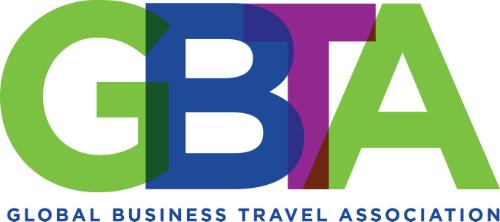
New variant developments, government restrictions, and international policy inconsistencies are currently hindering a more accelerated return for global business travel. However, the industry continues to reflect progress and optimism in its long-view expectations for 2022, according to the latest poll from the Global Business Travel Association (GBTA), which has been tracking the impact of COVID on the business community since 2020.
“Here at the start of a new year, the business travel industry and business travelers continue to face a dynamically changing landscape due to Omicron. One comment received from a poll respondent readily sums it up: ‘Uncertainty is a huge wet blanket on [business] travel,” said GBTA CEO Suzanne Neufang.
Despite these new challenges, the poll found positive signs as industry professionals continue to be optimistic for the long-term outlook of global business travel. The poll was conducted during the month of January 2022.
- OPTIMISM FOR THE LONG HAUL. Three in four travel managers expect business travel volume at their company will be much (17 percent) or somewhat (58 percent) higher in 2022 than it was in 2021. Another one in ten (12 percent) expect business travel to remain about the same as 2021, but few (5 percent) expect it to be lower.
Among travel suppliers and travel management companies (TMCs), three in four expect their company’s revenue in 2022 from business travel to be much (25 percent) or somewhat (51 percent) higher compared to 2021. An additional one in ten (13 percent) suppliers and TMCs expect their company’s revenue to remain about the same as 2021.
- COMPANY TRAVEL CANCELLATION DECREASES. Poll results show a decline in the percentage of companies that continue to suspend or cancel business travel. Sixty-eight percent of GBTA member companies have not yet opened international travel, compared to 79 percent in the October 2021 GBTA poll, and 29 percent have not opened domestic business travel versus 38 percent in October. Fewer than four in ten (38 percent versus 48 percent in October) of respondents report their company has suspended or canceled all or most business travel regardless of location.
- CURRENT BUSINESS IMPACTS. Six in ten (60 percent) suppliers/TMCs report their bookings from corporate clients decreased from the month prior. One in five (21 percent) characterize their bookings from corporate customers as having increased, but another one in five (19 percent) report their bookings remained the same.
Most suppliers and TMCs surveyed are concerned about the impact of Omicron on their company’s revenue derived from business travel, with seven in ten reporting it will likely have a very negative (32 percent) or moderately negative (38 percent) impact. An additional one in four say it will have either a slightly negative (20 percent) or no impact (3 percent) on revenue.
- COMPARING VARIANTS. When asked to compare Omicron and Delta variant concerns, respondents were more positive but still divided. Two in five report they are either less worried (43 percent) about Omicron or are equally concerned (45 percent). Only one in ten (13 percent) say they are more worried about Omicron.
- COMPANY GUIDANCE LARGELY UNCHANGED. Relatively few companies have introduced new travel restrictions due to the Omicron variant. Only one in four (27 percent) travel managers/procurement officers report their company has introduced new travel restrictions or requirements, whereas two-thirds (67 percent) report their company has not. More than half (52 percent) reported their company is unlikely to do so.
Some travel barriers named included company policies restricting employees from traveling (24 percent), employee unwillingness/reluctance to travel (9 percent), offices not being fully open (9 percent), and travel budget freeze or cost savings (6 percent).
- HURDLES CONTINUE FOR INTERNATIONAL TRAVEL. When asked to name barriers specifically to international business travel, respondents said policy uncertainty (72 percent), strict requirements on international visitors (69 percent), policy inconsistencies across different countries (64 percent), and required documentation and paperwork (45 percent).
- GETTING BACK OUT THERE. Despite Omicron, most travel managers feel employees are willing to travel, with two in three (64 percent) noting that their employees are willing or very willing to travel for business. This was down, however, from 78 percent in the October GBTA poll.
The full poll results, including previous polls, can be viewed here.
Visit gbta.org for more information.
[01.20.22]

